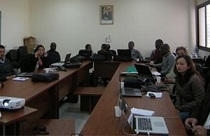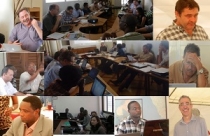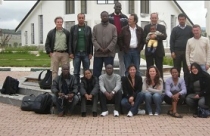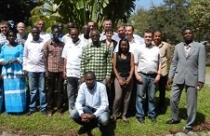History
Initiated and supported from 2013 to 2015 by the IRD/AIRD through PARRAF project, the idea of Casa grew out of the collaboration between African and European researchers convinced of the need to consider soil carbon.
Today, Casa network is mainly driven by 4 research teams from the South and the IRD, and made up of 21 research teams from 11 African countries.
The objective is to contribute to a better consideration of soil carbon for sustainable agriculture in Africa. Nework researchers contribute to understand, quantify and model the potential of carbon sequestration in soils according to their uses, as well as to identify and quantify the trade-offs and synergies between carbon sequestration, food security, biodiversity maintaining according to soil-climate contexts.
Since the launching of CaSA in 2013, soil carbon sequestration topic has been widely developed, particularly in 2015 with the fresh impulse of the “4 per 1000” initiative, for food security and climate.
In various scales Casa network members has therefore developed activities, through research projects and through partnership structures such as the Circasa , Soca (BNP Paribas Foundation), LMI IESOL and JEAI Servipalm... Internal activities including the organisation of workshops and side events, actors sensibilisation at local level, publications, training, setting up of common methodological study... constitute the major products of the Casa network.
All of those activities have greatly increased the international recognition of a South-North research collective on the topic of carbon sequestration of agricultural soils in Africa.





